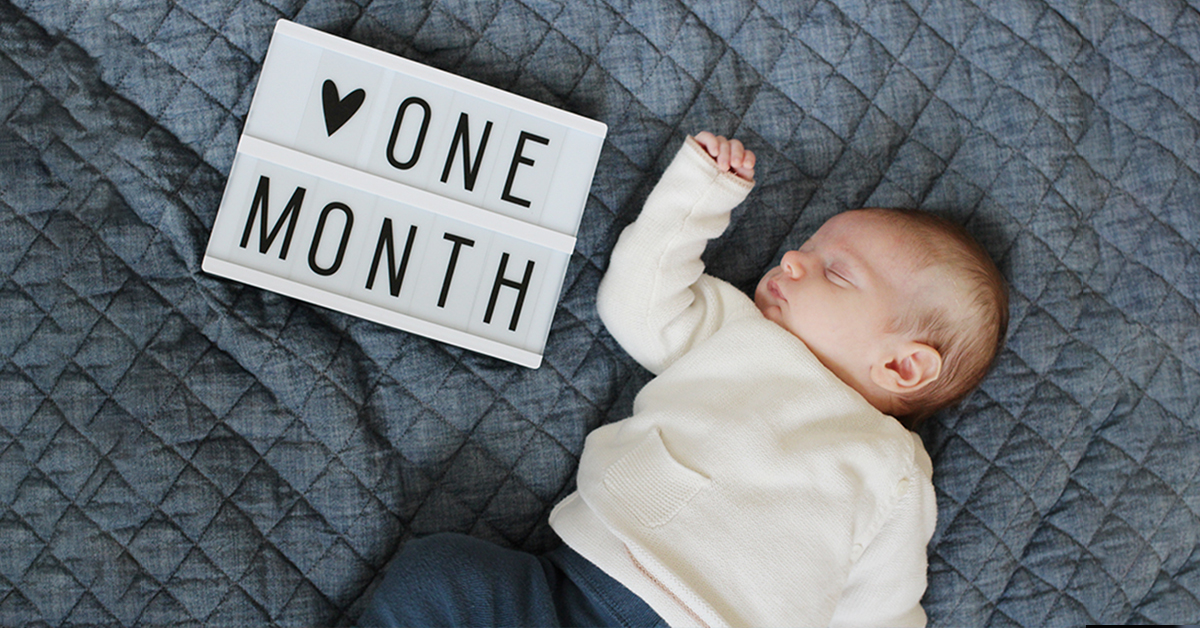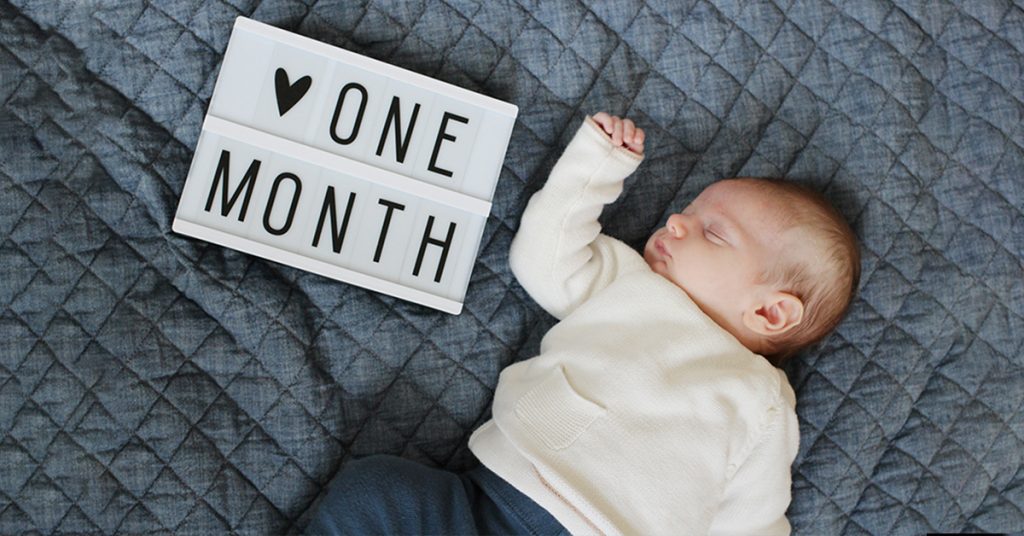
One Month Baby Care Tips
Babies sleep a lot in the first month of their lives, and most parents find this period the most stressful period because of their sleepless nights.
1-month-old baby activities are very limited and fussing and crying are common in the first 3 months and you should expect that.
Nevertheless, parents can observe both physical development and intellectual development in the first month, and you can pay attention to their nutrition and health.
Your Baby tries to Identify things
Your 1-month-old baby would try to make repeated eye contact to identify people and things around him. Of course, this works with people like dad, mom, or anyone that’s always around him.
The baby tries to get familiar with people and things and to differentiate between things and people.
Even when you move things around him, he would try to move his eyes along and follow it.
Your baby would also be interested in music or low pitch sounds. You can offer your little one communication learning devices in this period to enjoy his moments.
Your baby gets to know his body slowly and his body movements become more voluntary.
A 1-month old baby uses his hands and thumbs to calm himself down.
It’s time for a Medical Check-up
While your baby will be well checked before being discharged from the clinic, your doctor would usually schedule another meeting after about 1 month to check your baby medically and offer vaccines in most cases.
Your doctor or pediatrician would examine your baby extensively and palpate him.
Some of the things your doctor would check are the following.
- Whether your baby can hold his head for a while or not
- Whether there’s still innate cry reflex or not
- Whether your baby will be frightened by sounds and if held face down.
- Whether your baby has good posture overall or not
Another ultrasound of the hips can also be taken. This is important especially if your baby was born with an underdeveloped hip.
Most babies would have improved their hips at 1 month. If not, your doctor may have to prescribed spreader pants for the baby.
One Month Old Baby Feeding
You should breastfeed your 1 month old baby. The yellow milk (colostrum) is available for about first 2 weeks, however, you should continue to breastfeed your newborn.
If you’d have to offer formula, you should talk to your pedatrician.
New mothers often ask how much and how long they can breadtfeed their 1 month baby.
It is best to feed your baby as he demands, however, you should not wait for your baby to cry before feeding him both in the day and at night.
It’s advised to breastfeed your baby every 2 hours if your baby likes to sleep too much and doesn’t demand for food frequently.
You should however not feed at less interval as this could lead to gas in babies stomach because there might be undigested milk from the previous brestfeeding session.
You should wake your 1 month old baby to eat if the need be. You should also breastfeed the baby for at least 15 minutes, and feed on both breasts.
The Onset of 3 Months Colic
Newborns don’t have any other way of expressing their needs and discomfort than screaming, cooing and crying.
Around 2 weeks after birth, the three-month colic begins in many babies. The cause of baby’s colic may be flatulence because her digestive system is not yet fully developed.
The healing of the umbilical cord is slow and it’s another cause of colic. Colic is when there’s excessive cry that lasts for 3 hours when the baby is not sick.
How to understand Colic in Babies?
- Continuous screaming when the body is stretched out.
- The baby pulls its legs up at irregular intervals, the stomach is hard.
- Often, the screaming phases begin in the early evening hours and last for several hours.
Conclusion
Both mom and dad should be able to spend as much time as possible with their new baby.
You should cuddle and seek closeness, and the more, the better for the whole family.

A relationship expert, sexologist, marriage counsellor, and sexual health advocate with nearly two decades of experience helping individuals and couples build stronger, more fulfilling relationships.
I believe that healthy relationships begin with self-awareness, empathy, and open dialogue about love and sexuality.
Driven by the goal of helping others live happier, more balanced lives, at SexPally, I’ll continue to advocate for better sexual health education, stronger love relationships, marriages, and positive parenting that fosters emotional resilience and mutual respect.
